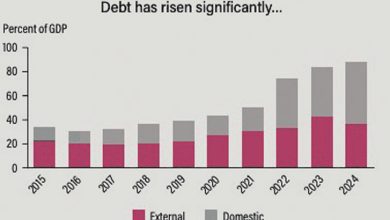Digital banks on the cards
Malawi is set to have digital banks following the registrar of financial institutions’ new licensing and regulations framework for the establishment of the same in a move financial experts have described as transformative set to modernise the country’s financial sector.
The registrar said the regulations known as Financial Services (Licensing, Regulation and Supervision of Digital Bank) Directive 2025, will ensure that a digital bank maintains sound governance and risk management practices as well as effective oversight of its technological infrastructure, cybersecurity risk and data privacy.

Reserve Bank of Malawi (RBM) Governor MacDonald Mafuta-Mwale, who is the registrar of financial institutions, said in a notice the licensing requirements for digital banking will include risk management, governance requirements and commitment to use shared autoteller machine networks and cashout services with other banks although agent banking and physical access points will be enabled.
Reads part of the directive: “A person shall not operate a digital banking business unless they obtain a licence from the registrar.
“The licence shall be granted in stages, with a provisional licence granted upon meeting preliminary conditions and a full licence issued after fulfilling all licensing requirements within stipulated timelines.”
Mafuta-Mwale said full licensing requirements shall include successful implementation of all risk management, cybersecurity and operational systems demonstration of operational readiness, including infrastructure, personnel and compliance measures.
The directive also stipulates the use of agent banking, physical office and a branch, stating that if a digital bank wishes to engage the services of a bank agent, it should submit details of the proposed agent, including description of the unserved and under-served segments that shall be served through the agent.
“A digital bank shall be permitted to establish a physical office for administrative purposes. If the digital bank intends to facilitate face-to-face customer complaints besides their online platform, the physical office shall also serve as a service centre for this purpose.
The directive further indicates that a digital bank shall not establish a branch and that it may participate in the shared automated teller machine network and any other cash-out services as well as enter into commercial arrangements with other banks for the use of their network of self-service terminals, including automated teller machine and cash deposit machines.
Financial experts have since described the new regulatory framework as both timely and transformative, saying it can modernise the country’s financial sector, expand access and build resilience in a rapidly evolving digital economy.
In an interview on Friday, Bankers Association of Malawi chief executive officer Lyness Nkungula said from a strategic standpoint, this approach is critical as it widens financial inclusion and drives innovation, thereby enhancing efficiency and transparency and supports economic recovery.
She said: “Digital banks have the potential to reach unserved and under-served populations, particularly in rural areas through mobile platforms and agent networks.
“By reducing the need for physical branches, they lower the cost of service delivery and bring banking closer to the people.”
Nkungula said the directive will encourage new entrants and Fintech-driven models, which can stimulate innovation in products, pricing and customer experience.
“This benefits consumers and pushes traditional banks to modernise,” she said.
Nkungula said with digital banks built-in requirements for cybersecurity, data protection and digital governance, the directive promotes safer, faster and more accountable banking services, which aligns Malawi with global best practices in digital finance regulation.
“By enabling faster onboarding of customers, digital credit scoring and real-time payments, digital banks can support micro, small and medium enterprises, facilitate trade and improve liquidity in the economy, especially in sectors such as agriculture, tourism and informal commerce,” she said.
In a separate interview, financial technology expert and country manager for Paws Pay Arthur Muyepa described the RBM’s move as a real game-changer, saying for a long time access to banking in Malawi has been limited by geography and cost, with few branches and too much paperwork.
“Digital banks change that by operating fully online, reaching customers wherever there is a phone signal,” he said.





